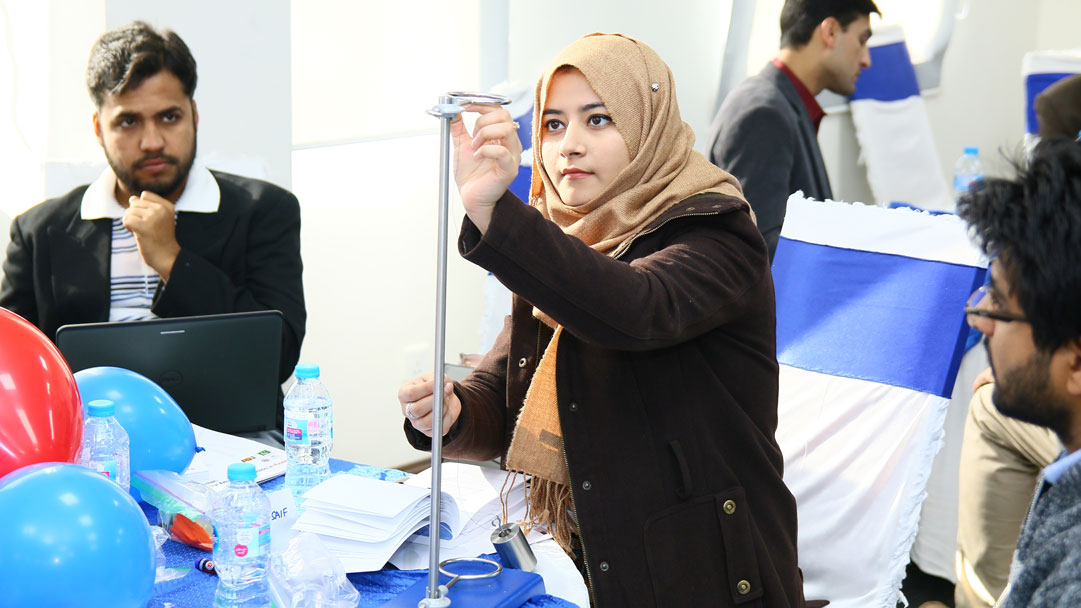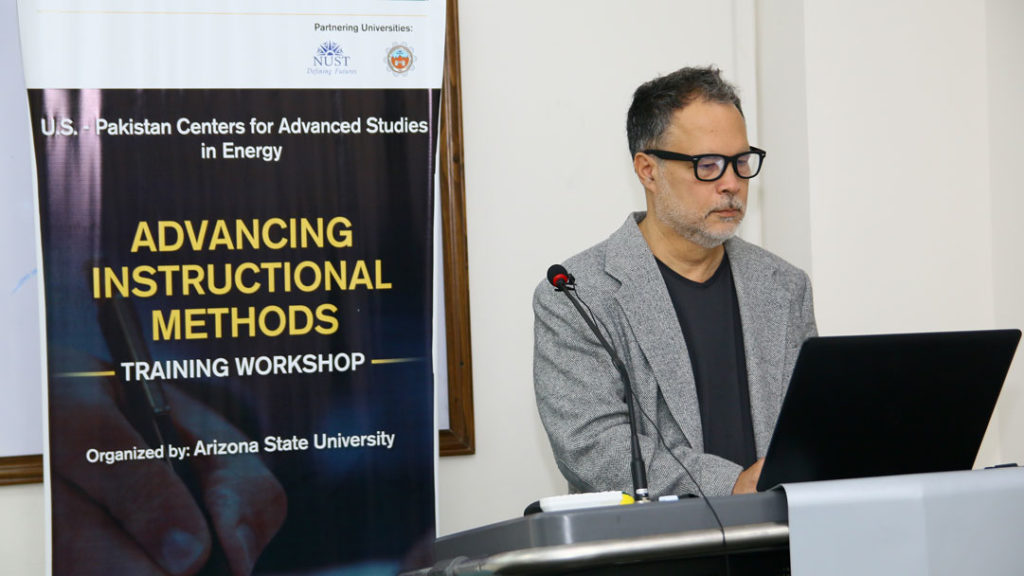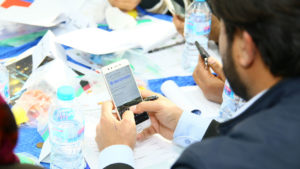Promoting Active Learning in the Classroom

The USAID-funded USPCAS-E program organized a professional development workshop for UET Peshawar and NUST faculty to promote active learning methods.
[et_pb_section bb_built=”1″ admin_label=”section”][et_pb_row admin_label=”Row”][et_pb_column type=”4_4″][et_pb_text admin_label=”Text” background_position=”top_left” background_repeat=”repeat” background_size=”initial” _builder_version=”3.0.51″ background_layout=”light” text_orientation=”left” border_style=”solid”]
How do you transform the classroom experience and make the learning process engaging meaningful and relevant? How do you ensure that students really learn the material? These questions are at the heart of USPCAS-E efforts to reimagine the energy education curriculum at its partner universities in Pakistan.

The USAID-funded USPCAS-E program organized a professional development workshop in Pakistan for UET Peshawar and NUST faculty on active learning methodologies. Active learning is a process that involves students as active participants and partners in the learning process. About three-fourths of the 30 center faculty participated in the training to learn how they can improve classroom learning. Ten staff including research associates and lab managers also participated. The goal is to create a learning environment that promotes student learning and helps students excel as designers, problem-solvers, critical thinkers, team members and leaders.
The three-day workshop held January 15-17, 2019, was facilitated by Dr. Peter Rillero, an associate professor of science education at Arizona State University. This workshop was part of a comprehensive program designed specifically to improve teaching practices at the USPCAS-E centers and will lead to an Advancing Instructional Methods (AIM) certification.
The training is designed to be repeatable for the benefit of all current and future faculty and staff.
 Workshop topics included higher-level thinking, questioning techniques, assessing and engaging through classroom response systems, and the scholarship of teaching and learning. The workshop provided participants with hands-on experience using two real-time student response systems, Socrative and Plickers. These apps allow instructors to collect data from their students through their own devices, including smartphones and laptops, or with verbal responses. Student response systems provide learners with real-time feedback on their understanding of a topic and they provide instructors with a gauge of their students’ understanding of the material.
Workshop topics included higher-level thinking, questioning techniques, assessing and engaging through classroom response systems, and the scholarship of teaching and learning. The workshop provided participants with hands-on experience using two real-time student response systems, Socrative and Plickers. These apps allow instructors to collect data from their students through their own devices, including smartphones and laptops, or with verbal responses. Student response systems provide learners with real-time feedback on their understanding of a topic and they provide instructors with a gauge of their students’ understanding of the material.
Dr. Muhammad Noman and Dr. Affaq Qamar from UET Peshawar and Dr. Arsalan Khawaja from NUST also facilitated sessions on active learning and shared their experiences from the International Society for Exploring Teaching and Learning conference held in Arizona in October 2018. (See related post.) All three faculty recently returned from an exchange program at Arizona State University. The exchange program provides faculty and graduate students opportunities to expand their knowledge base and professional networks in an immersive program that exposes them to new ideas, methods and approaches to energy engineering. (Learn more about the USPCAS-E exchange program.)
The USAID-funded USPCAS-E program is helping faculty to improve the quality of course delivery and assess outcomes in the teaching and learning environment in order to promote continuous improvement.
[/et_pb_text][/et_pb_column][/et_pb_row][/et_pb_section]